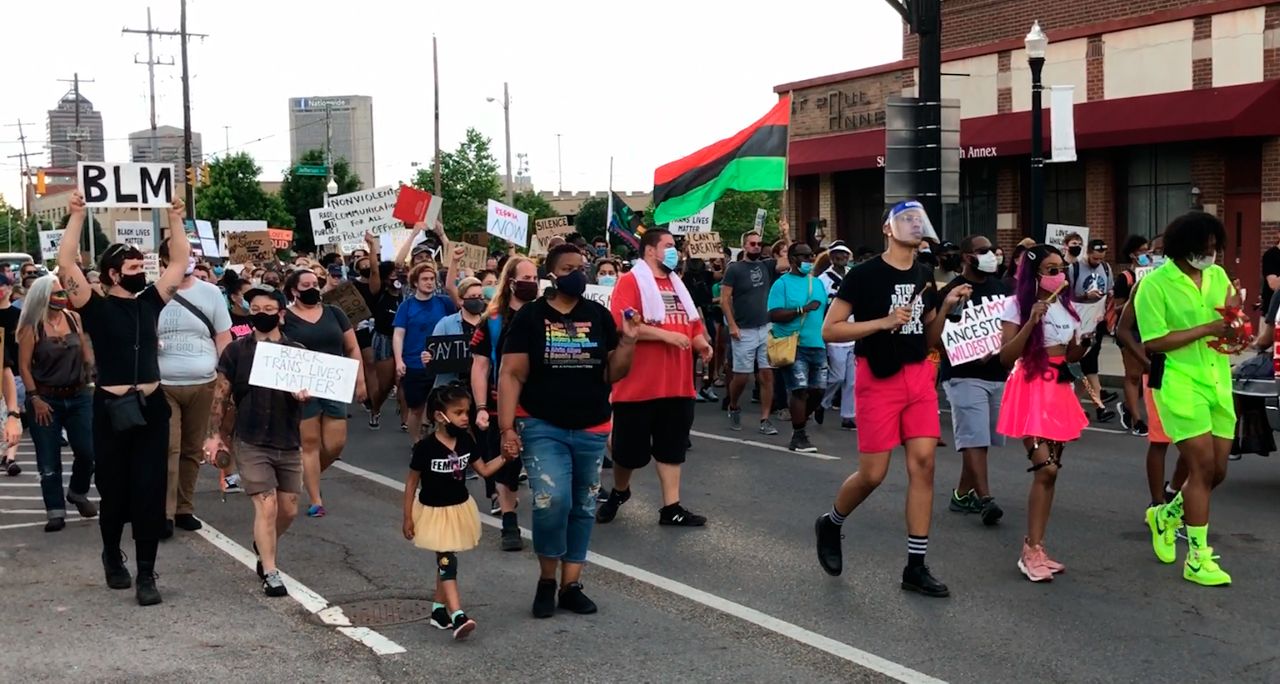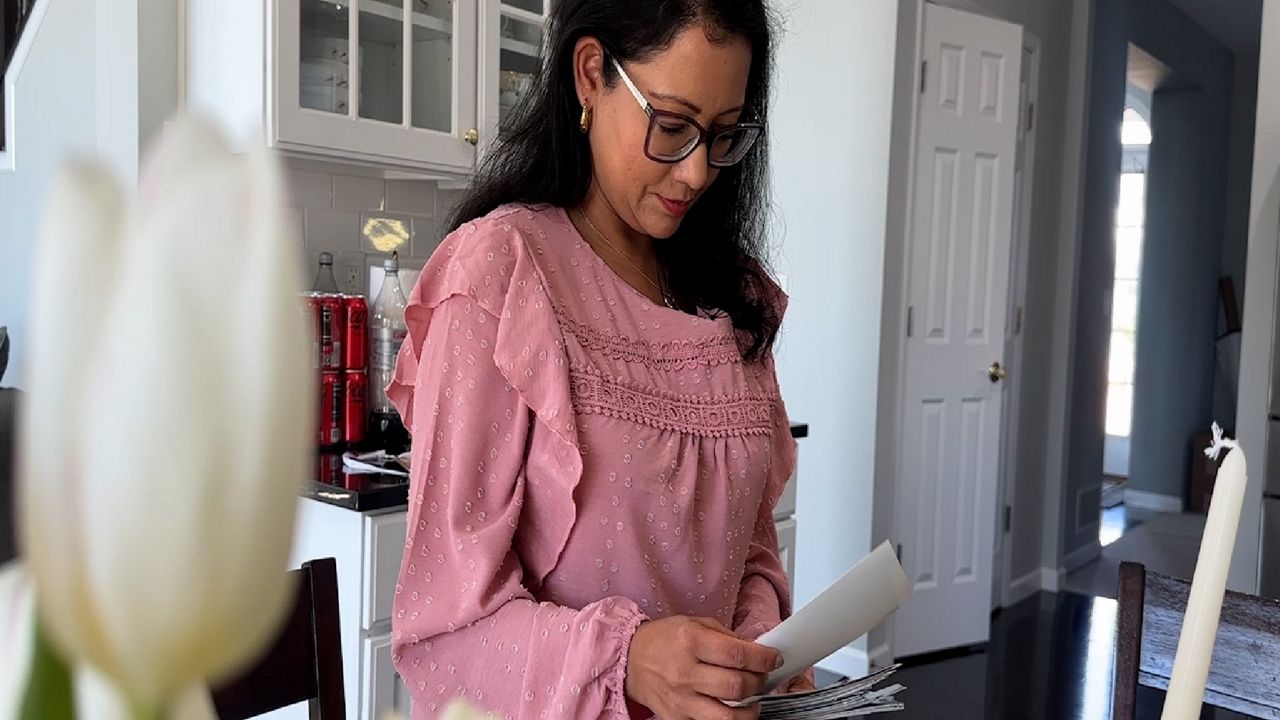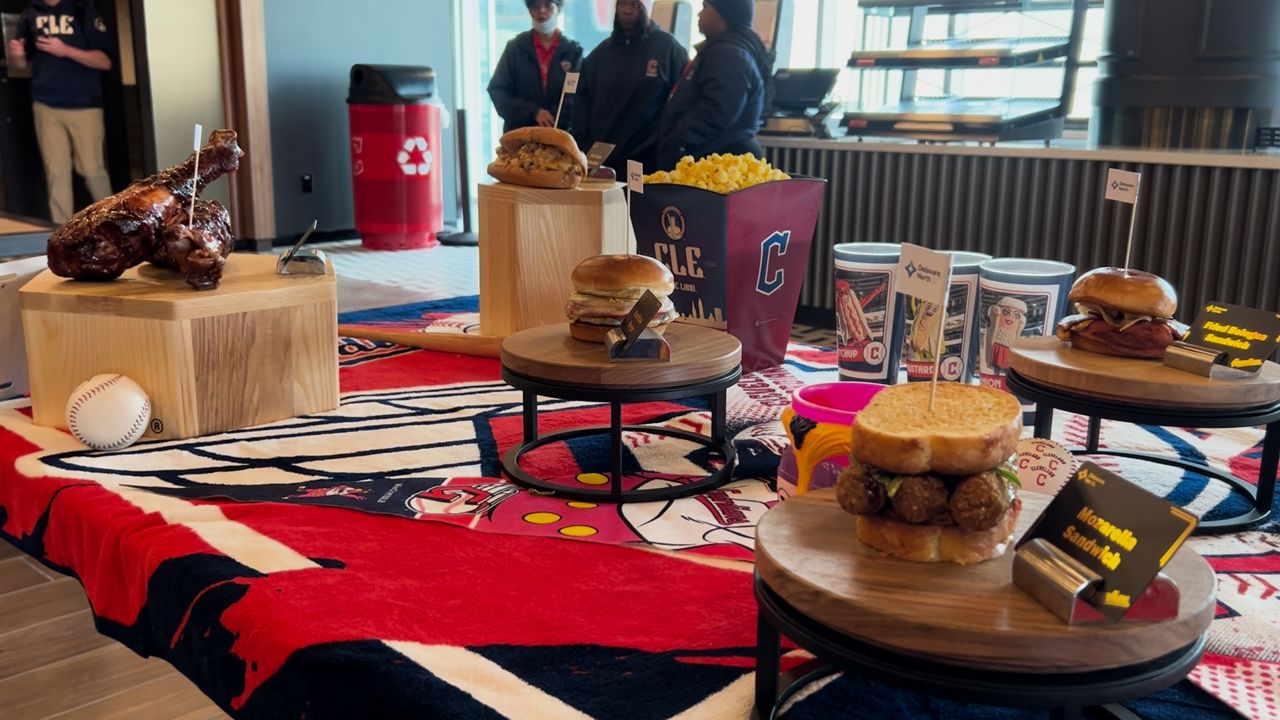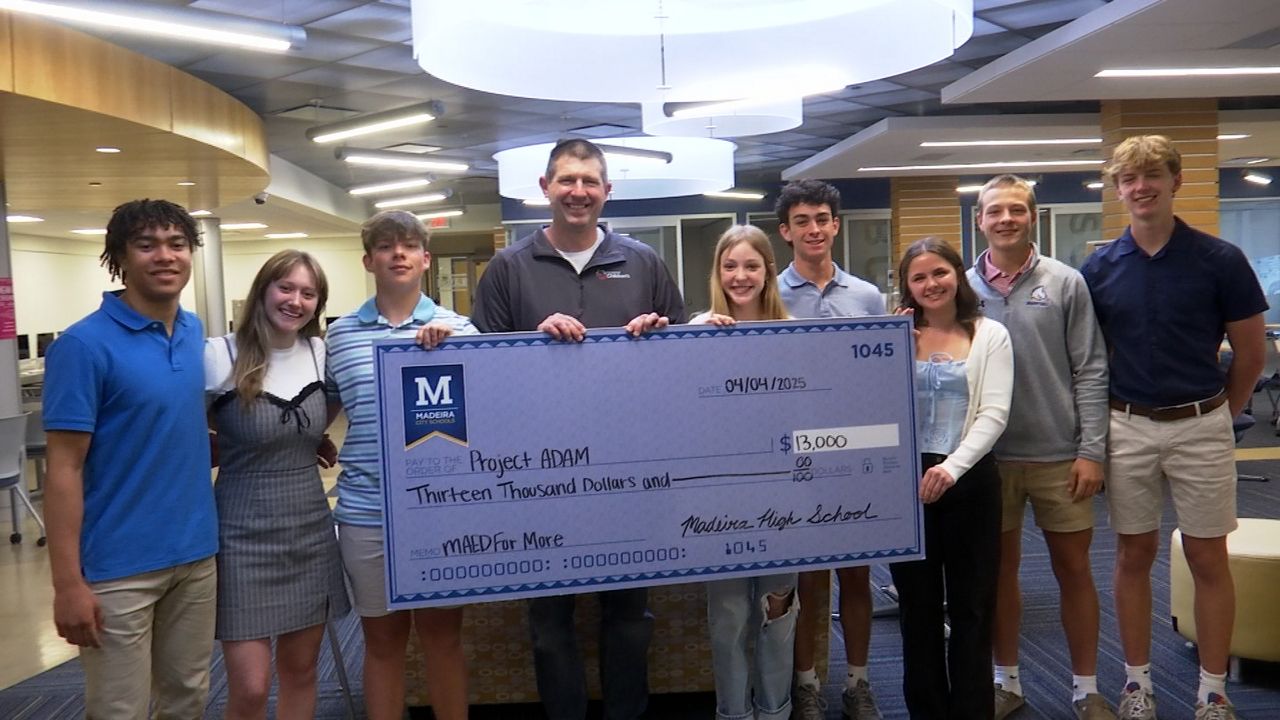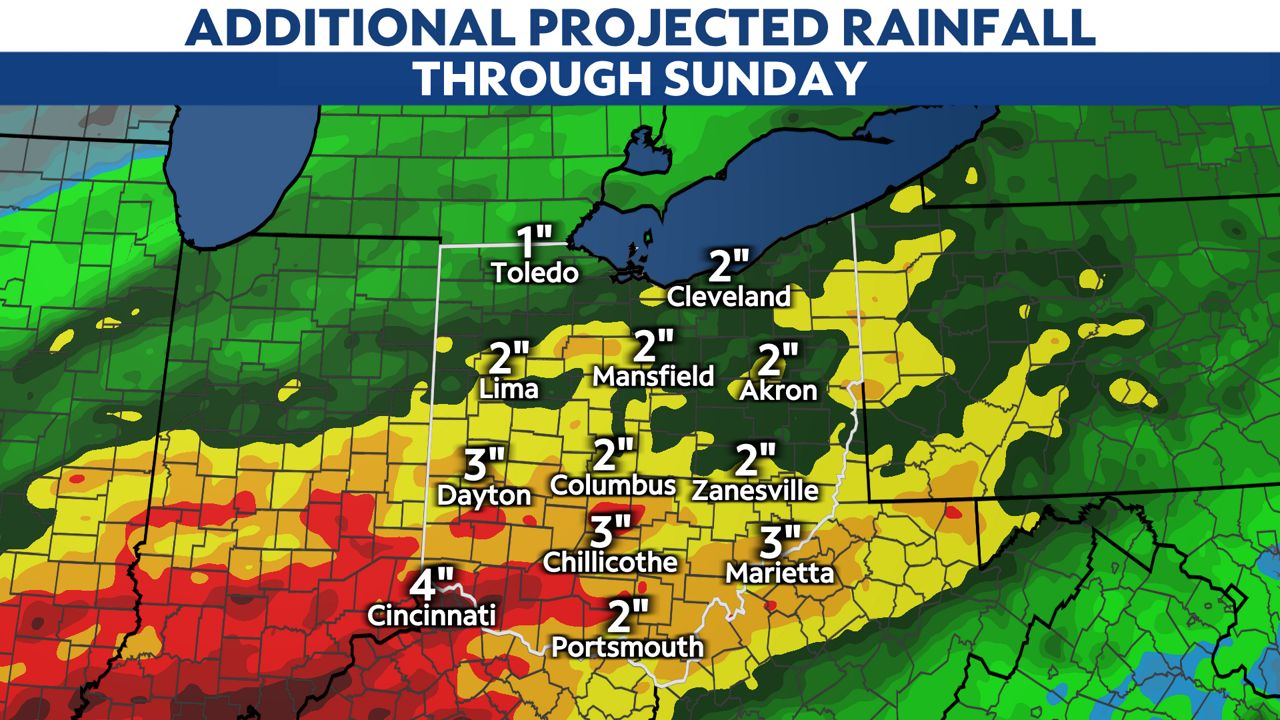This is LGBTQ Pride month and normally rainbow flags and parades would fill streets across the Buckeye state.
But, with coronavirus risk postponing celebrations, and the continued protests against police brutality and racism, and for black liberation, members of Columbus' Black LGBTQ community are making their voices heard and working to push change.
“Being black and having the intersections of queer, LGBTQ+ this is really important,” says Deputy Director of Kaleidoscope Youth Center and march drummer Karen Hewitt. “And, when we think about our ancestors and how we got here. I think it's everything to be a part of the heartbeat that gets us in motion as we march."
Marching on in the trail blazed by Black and LGBTQ ancestors against police brutality and racism.
Hewitt, who works with LGBTQ youth, says everyone plays a part.
“Black and indigenous, people of color, also white people and our allies, I think it's important that we all realize our different places in the work that is to do to to undo racism, and to be anti-racist,” says Hewitt. “And, it takes different work in different places, but abolition was a country movement.”
Black LGBTQ groups are taking the reins in Columbus' protest movement this weekend, holding multiple events over the weekend like this rally and march on Friday – honoring Juneteenth and the legacy of LGBTQ pride.
“Because we are both,” says Boyd-Nelson. “We are at the intersection of identities we are black and LGBTQ and being one doesn't negate the other.”
The group Black, Out and Proud organized the event on Friday to recognize the historical and current connections between the Black and LGBTQ fight for equality.
“When we live at that intersection of identities, we also live at the intersection of oppression,” says Boyd-Nelson. "As Black LGBTQ people we face extreme discrimination in this country."
Erin Upchurch directs Kaleidoscope Youth Center and serves on the new Chief's advisory panel. She says that Pride may look different this year, but the meaning of pride hasn't changed, just the purpose.
“We have been asking people to rethink pride, rethink how we're showing up in the world,” says Upchurch. “What is pride about? It's about belonging, it's about being yourself, it's about safety, it's about community, and visibility and representation and so this is still pride celebration for us.”
Protests again reached Mayor Andrew Ginther's front lawn on Saturday. An event organized by the group black queer intersectional collective. Prince Shakur says their mission is clear.
“Step 1, I think it looks like abolishing, defunding, dismantling, demilitarizing the Columbus Division of Police,” says Shakur.
Shakur says members of the group saw first hand racism police violence back in 2017 during columbus pride weekend.
“Protestors who were mostly black queer and trans folks disrupted the parade peacefully. And were brutalized by Columbus Division of Police,” says Shakur. “White people spit on members of the Black Pride 4. They were deadnamed, placed in facilities that did not match their gender.”
And because of that experience, he says the past weeks were no surprise.
“I'm a 25 year old gay black man in America. I've been brutalized by police, and people in my family have been brutalized by police,” says Shakur. “And , I think what we've seen in the past few weeks is now that the community has taken these ideas of prison abolition and police abolition, the city does not want to allow that.”
BQIC is calling several demands, including resignation for Mayor Andrew Ginther and Columbus Division of Police Chief Thomas Quinlan, abolishing and defunding the police department, and reparations for Black people.
“Defunding from them and allocating that money to community resources, toward education,” explained Shakur, who says the protests now are just a continuation of past liberation work.
“It's also in the lineage of Black people to fight for their freedom, to escape slavery, to fight segregation, to fight the prison system,” says Shakur. “So, I think what's happening now is tied to the last 10-15 years and it's tied to the last 400 years.”
A weekend of activisim as a nod to how modern lgbtq pride began, and the black liberation movements which inspired it. With a renewed hope for change.
When I was marching I thought about for the first time in my life,my community, our community is marching with jus as black people black LGBT people, and instead of joining them they are joining us. And that is huge, and that communicates to all of our young folks and maybe people who are not out that there are people here, and they have our backs.
Another march, The LGBTQ Unity March, hosted by Central Ohio apparel company Kingfinity is scheduled for Sunday at the Ohio Statehouse beginning at 12 Noon.





